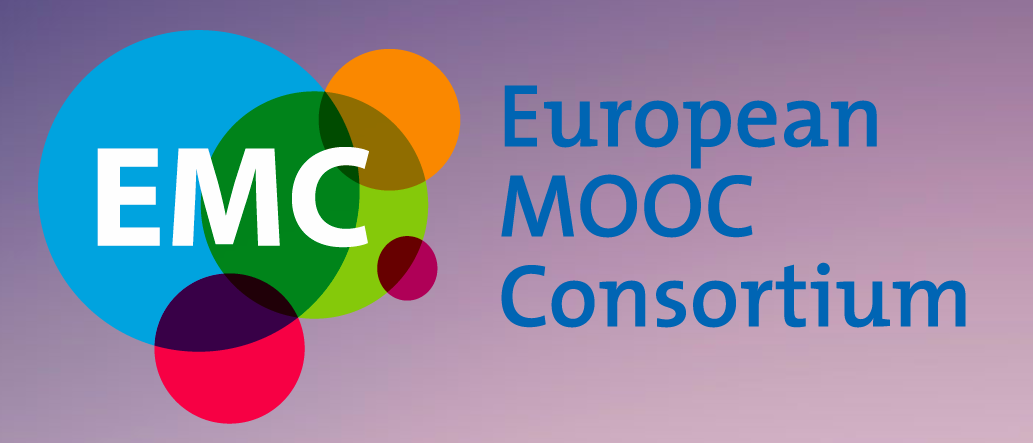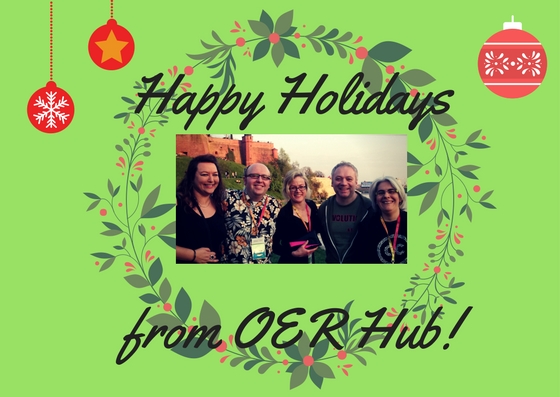Earlier in the week I reported on the preliminary Autumn 2013 pre-course questionnaire results of the work we’ve been doing with School of Open (SOO) over the past year. In this blog post, I’m focusing on the preliminary results of the post-course questionnaire. We received a total of 22 responses from participants in two out of the four courses that we surveyed: Copyright 4 Educators (AUS) and Creative Commons (CC) for K-12 Educators. Unfortunately we did not receive any survey responses from those who had participated in the Writing Wikipedia Articles; the Bascis and Copyright for Educators (US) courses. There could be many reasons as to why this was the case (e.g. number of active students in the course at this stage, student awareness of the post-survey etc.). However, as with the pre-course survey, the post-course questionnaire was optional and we were very much dependent on individual participants deciding/being able to take time out to participate in our research.
Consequently, and perhaps unsurprisingly, this post-course sample group was comprised largely of different individuals than those that participated in the pre-course questionnaires. However, there are a small number of identifiable individuals who participated in both surveys and isolating them from the dataset, and looking more closely at their responses (particularly around motivating features of the courses) may be a fruitful future endeavour. Given that the majority of post-course respondents participated in the Copyright 4 Educators (AUS) course there is also a case for isolating this group of respondents and looking in more detail at their responses.
School of Open (SOO) Post-Course Survey Results
Sample
A total of 22 participants from two of the facilitated courses responded to the post-course survey. The majority of respondents were female (86.4%, n=19), with 13.6% (n=3) of respondents declaring themselves as male. 90.9% of respondents live in Australia (n=20) with the remainder of respondents living in Europe (9.1%, n=2). Of the respondents that live in Australia, 60.0% live in New South Wales and 30.0% in Victoria (n=12 and n=6, respectively). Just over 90.9% of survey respondents have English as their first language (n=20) and 100% of respondents did not consider themselves to have a disability (n=22).
Similar to the pre-course survey responses, this cohort also largely comprised of respondents with advanced levels of academic attainment: over 60% of respondents reported having a Masters Degree or Bachelor Degree with Honours (36.4%, n=8 and 27.3%, n=6, respectively). As with the pre-course survey results there are particular reasons as to why this is the case (see my previous blog post).
Over 90% of respondents told us that their chosen SOO course met their anticipated outcomes (90.5%, n=19). 100% of respondents would recommend their SOO course to others (n=19), whilst over 80% of respondents would consider enrolling in another facilitated SOO course (84.2%, n=16).
Motivating Features of Respondents’ Chosen SOO Course
We asked participants about what features they had encountered whilst they were participating in their chosen SOO course and which, if any, of these features motivated them to study. As in the instance of the pre-course survey results, further work needed on this set of questionnaire results in order to understand the relationship between encountering a feature and finding it motivating. 75.0% of respondents reported finding being able to work through the course with other people motivated them to study (n=15). Similarly 70.0% of respondents reported finding the following features of their SOO course motivating (n=15): working collaboratively with other people to complete tasks, being presented with a series of challenges or tasks in order to demonstrate skills development and being required to complete tasks for which an instructor would give feedback.
Badges
50% of respondents earned at least one badge during their SOO course (n=9). We filtered respondents who had earned a badge and asked them if the badges they were awarded during the course motivated them to continue their studies. Over 60% of respondents answered “no” (62.5%, n=5) with a quarter of respondents reporting that being awarded a badge had motivated them (25.0%, n=2). Similarly, in another question asked of all survey respondents, where participants were asked which features they encountered during their SOO course and whether these had motivated them to study, 80.0% (n=16) of respondents reported encountering a feature where they were rewarded for participation, skills or knowledge through an online “badge” whilst 15.0% (n=3) of respondents told us that they found this feature motivating.
Further work is needed to understand these results better. For example, the respondents answering “no” had all participated in the Copyright (AUS) course, whilst both survey respondents from the CC for K12 Educators course told us that they had found badging motivating. Although the sample is very small, is it possible to explain the difference between course participant groups? Both courses were targeted at educators. However, as noted in my earlier blog post, the Copyright 4 Educators (AUS) course was promoted and ran by the National Copyright Unit (NCU) of Australia. As co-facilitator of the course Jessica Smith notes the course was extremely popular, run by a national organisation and participation was in some cases mandatory:
“So the association helped with the initial promotion of the course, but we also believe the reputation of the NCU encouraged teachers to sign up for the course: it made teachers feel more comfortable asking questions/contacting us, it decreased the numbers of dropouts, and we also found that many employers, such as school deans, required their teaching staff to take the course.” (See: Jessica’s blog post, accessed 14 March 2014 at 11.02)
Could it be that post-course survey respondents from the Copyright 4 Educators (AUS) course considered participating in a highly regarded insitution’s course, or being asked to participate in the course as part of their professional development, more important (and possibly motivational) than being awarded online badges for participation? Or could it be that the way the badges were integrated into the courses affected the way they were perceived by learners? There were five badges available for those participating in the CC for K12 Educators course and four in Copyright 4 Educators (AUS). In both instances, badges were earnt as you progressed through the course. In the instance of CC for K12 Educators you could also apply for a badge for course completion. Did this make a difference to the way the badges were perceived? Or are there other reasons for the intriguing responses to this question?
Impact
We asked survey respondents to state their agreement with a series of statements prefixed by “As a result of my School of Open study, I feel more able to…” It is of note that many of the answer options we had for this question (which originated from our standard survey bank response for this particular research foci) directly related to the content of the SOO courses being researched (e.g. the ability to find particular types of resources). 88.2% of respondents strongly agreed or agreed that they felt more able to identify different types of openly licensed resources (41.2%, n=7 and 47.1%, n=8, respectively). Likewise 88.2% of respondents felt more able to know whether they have permission to use, change or modify resources (41.2%, n=7 and 47.1%, n=8, respectively). Around 70% of respondents strongly agreed or agreed that they felt more able to identify resources that are aligned to professional standards or regulation (23.5%, n=4 and 47.1%, n=8) as a result of their SOO study. Likewise, over 80% of respondents strongly agreed or agreed that they felt more able to know where to find resources (23.5%, n=4 and 64.7%, n=11 respectively). As above, these results are perhaps unsurprising given the focus and content of the courses (e.g. week six of the Copyright 4 Educators (AUS) course focuses on OER whilst the focus of CC for K12 Educators is the identification and use of OER and Creative Commons licensing). However, consequently, these results appear to indicate that the courses were successful in effectively delivering their learning outcomes.
One or two additional options were added to each of the different course surveys to reflect specific content of the courses (e.g. “use copyrighted material appropriately” for both Copyright 4 Educators questionnaires). Here there were mixed responses but, it is difficult to determine the reasons why this might be the case. In the instance of Copyright 4 Educators (AUS), similar to the standard survey bank questions noted above, over 90% of respondents strongly agreed or agreed that they felt more able to use copyrighted material appropriately as a result of participating in the course (of particular note is that 60.0% (n=9) of respondents strongly agreed with this statement and 33.3% (n=5) agreed). However, both respondents to the CC for K12 Educators post-course survey reported neither agreeing nor disagreeing that they felt more able to create resources or share OER with others (100%, n=2). Again, it is difficult to understand why this is the case without further research.
We asked survey respondents what activities they had done during, or subsequent to, completing their SOO course. Almost 80% of respondents reported discussing the use of OER with others (78.9%, n=15). Over 30% of respondents had shared information regarding SOO (31.6%, n=6). 78.9% of respondents had discussed copyright issues with others (n=15) and almost 50% of respondents had discussed licensing issues with others (47.4%, n=9). Just over a quarter of participants had searched for OER that was unrelated to the course they had participated in (26.3%, n=5). Although we cannot conclude that these different activities took place as a result of participating in a SOO course; it is perhaps worth noting that the 10.5% of people who reported remixing OER unrelated to the course they had taken were participants in the CC for K12 Educators course where remixing OER was part of the course syllabus (n=2).
Educators
63.6% of post-course survey respondents reported working full- or part-time as a teacher/trainer (n=14). We filtered educators and asked this group of respondents a small number of questions about the context in which they work and if there had been any impact on their teaching practice as a result of participating in their chosen SOO course. Some results are as follows:
- Over 90% of educators strongly agreed or agreed that they have a more up-to-date knowledge of their subject area (30.8%, n=4 and 61.5%, n=8, respectively).
- Over 60% of educators strongly agreed or agreed that they reflect more on the way that they teach (25.0%, n=3 and 41.7%, n=5, respectively).
- More than half of educators strongly agreed or agreed that they used more open educational resources (OER) (7.7%, n=1, 46.2%, n=6, respectively).
- Over 60% of educators strongly agreed or agreed that they had improved their skills in ICT (30.8%, n=4 and 30.8%, n=4, respectively)
- Almost 70% of educators neither agreed nor disagreed that they collaborated more with colleagues (69.2%, n=9) or more frequently compared their teaching with others (69.2%, n=9)






Reblogged this on methylated-orange.
[…] 2 School of Open: Research Findings (Part II) .2014-03-14.http://oerresearchhub.org/2014/03/14/school-of-open-research-findings-part-ii/ […]